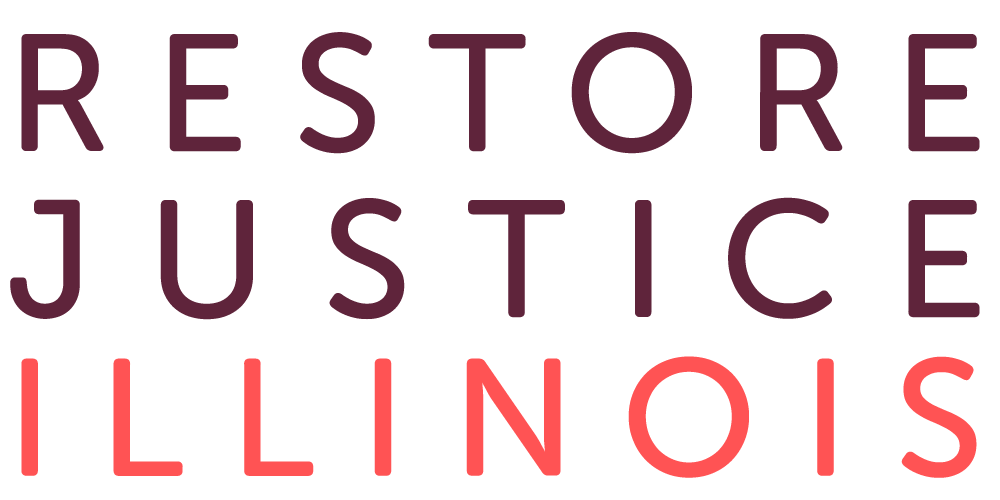Here’s what reform means to Restore Justice Illinois.
We can make Illinois a fairer, more compassionate — and safer — state.
What does it truly mean to reform our carceral system in Illinois? We aim to center the voices of those most harmed by Illinois’ unjust criminal legal policies of the past to create compassionate, smart, and safe policies for the future.
REFORM EXTREME SENTENCING LAWS
- Make gun enhancements discretionary for everyone. In 2015, the Illinois General Assembly took a bold step and made firearm enhancements discretionary for juveniles. Still, for those 18 and older, Illinois’s mandatory gun enhancements are the longest in the entire country. Judges are required to add 15, 20, or 25 years to the prison sentences of defendants convicted of certain felonies if the defendant possessed or discharged a firearm.
- Apply youthful parole retroactively. In 2019 and 2023, Illinois passed laws to ensure young people have parole consideration; these laws banned juvenile life without parole sentences and eliminated these sentences for most 18-20-year-olds. But, these laws were not retroactive. We need to ensure people who received life and de facto life sentences in their youth can seek second looks.
- Abolish mandatory minimum sentences for people younger than 18. Allow judges the discretion to decide an appropriate sentence for a juvenile based on relevant statutory factors.
- Review and amend other mandatory sentencing practices, such as mandatory consecutive (rather than concurrent) sentences and sentencing ranges that leave someone incarcerated long after they’ve made amends and become capable of successfully returning home.
ENSURE MEANINGFUL OPPORTUNITIES FOR RELEASE
Illinois should ensure people who are incarcerated have opportunities to demonstrate rehabilitation and work toward an earlier release. Restricting people’s ability to earn sentence reductions or parole teaches them—especially those who enter prison as children or young adults—that the system believes them to be beyond reform. Here are policies that would ensure people who pose no threat to their communities are able to go home:
- Implement a broader parole system that allows everyone, including adults, to prove they’ve been rehabilitated. There is no reason to continue incarcerating someone who poses no danger.
- Correctly apply “good time” sentencing credits to people sentenced before 1998. These people have been allowed to proactively earn time off their sentences through good behavior and participation in prison programming, however, it is not being correctly applied.
- Eliminate “truth-in-sentencing” and bring back “good time” for most people who are incarcerated, especially those imprisoned in their youth or early adulthood. Illinois eliminated “good time” in 1998. We should bring it back and let people who have earned college degrees, undergone substance abuse help, worked relevant jobs, and taken life skills courses earn additional credit toward early release.
CORRECT OUR PAST SENTENCING MISTAKES
As mentioned above, we need to provide relief to those already impacted by outdated laws. Illinois could allow people who were under 18 and received mandatory gun enhancements the opportunity to be resentenced, as those enhancements were made discretionary in 2017.
Here are examples of how other states have addressed retroactivity in efforts to reduce prison populations:
- In 2018, California created a system to allow people previously convicted of felony murder to be resentenced. In 2017, California created new parole opportunities for people previously sentenced in their youth to life in prison. The state has enacted other retroactive reforms, as well.
- In 2017, Louisiana restored parole eligibility for individuals convicted of second-degree murder who have served 40 or more years, granted parole eligibility to certain young people sentenced to life for first- or second-degree murder who have served at least 25 years, and granted medical treatment furloughs to people with limited mobility.
- In 2016, Colorado granted early release time to youth sentenced as adults for class 1 felonies.
IMPROVE CONDITIONS INSIDE PRISONS
Research shows harsh prison conditions do not reduce recidivism and can actually have the opposite effect. Most people who are incarcerated will eventually be released, and society is best served when time behind bars prepares people to live responsibly once released. Here are ways Illinois could improve prison conditions:
- Protect people’s ability to communicate and visit with family and community. As phone calls have become more financially feasible for people incarcerated in Illinois thanks to leadership in the General Assembly, access to phones has become a serious, and at times dangerous, issue. There are not enough functioning phones so calls have been reduced from 30 minutes to 20 minutes. IDOC should install more phones and reinstate the 30-minute call times.
- Ensure people who are incarcerated are able to vote. The right to vote is a basic democratic principle, and towns throughout Illinois count inmates as part of their populations—even though people who are incarcerated aren’t allowed to vote.
- Reduce the use of solitary confinement. Solitary confinement negatively impacts the mental and physical health of people who are incarcerated. It should be used sparingly and only when absolutely essential.
- Invest in prison programming that’s been proven to reduce recidivism.
STOP PUNISHING FAMILY MEMBERS
It’s important for the IDOC to ensure visits are possible. Visits are key to good behavior, rehabilitation, re-entry, and family stability (Prison Policy Initiative, 2015; the Minnesota Department of Corrections, 2011; Karen De Claire and Louise Dixon, 2011).
But, these visits are difficult. Nearly two out of every three families with an incarcerated member are unable to meet their family’s basic needs, according to an Ella Baker Center for Human Rights study. Still, moms and dads, sons and daughters, brothers and sisters, and aunts and uncles drive hundreds of miles and spend hundreds of dollars to make these visits happen.
Here’s how Illinois can support families:
- Reduce the cost of items in vending machines. Families and other visitors pay 1.5 times more for the same items than prison staff does. In addition, the machines are often broken and left empty. The state should reduce that predatory markup and make sure machines are working and stocked.
BE MORE TRANSPARENT
Court and prison data collection, storage, and sharing is flawed and inconsistent throughout Illinois. The lack of accessible data obscures critical information about convictions that could have a profound impact on legislation, prison placement, and re-entry opportunities. We need to be able to review, compare, and understand all aspects of the system in order to decide what works and what needs to be reformed. Illinois should streamline and improve data collection and sharing processes.

